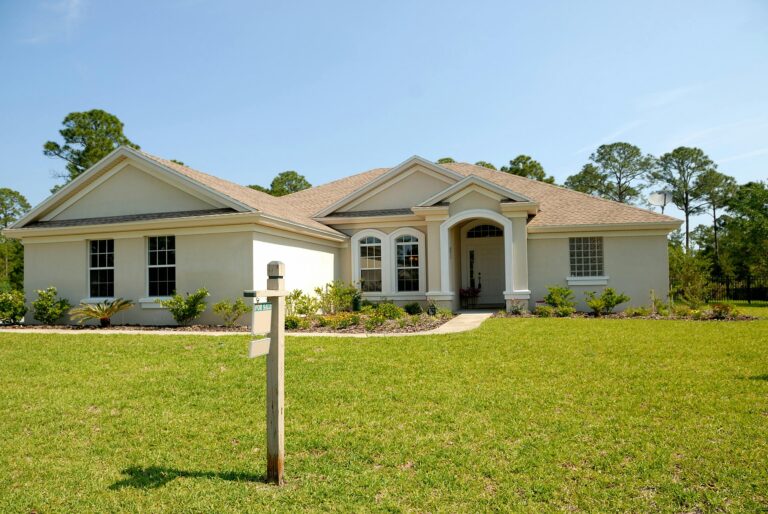
So you’re thinking about buying a home. You’ve started thinking about your future. You’ve got a stable job. A decent paycheck. Maybe even someone special to share life with, and now you’re ready settle down. The biggest purchase you’ll ever make is just around the corner – you have to pick a home.
Taking The Financial leap
Like many people, you’ll be paying off your home over 20 to 25 years, or longer. Do it right and you’ll be fine, but, do it wrong, and you might end up regretting it for a very long time. The key factor that separates a good home purchase from a bad one is, research.
Before you sign anything, ask questions like:
Can I truly afford this home — not just the loan, but the lifestyle?
What will this cost me monthly (with all the extra costs that come with owning a home)?
Does this home fit where I want to be in 5 years?
Educate yourself before you buy a house. Ask yourself as many questions as possible about your prospective home.
Should You Buy Or Rent?
It all depends on your finances. If you’re a first-time buyer, you might not have enough money for your “dream home”, but this doesn’t mean you’ll never afford your dream home.
If you can’t yet afford your dream home, start smaller. Start with an affordable property that suits your medium-term needs — then upgrade to another property as your living circumstances change, i.e. higher salary, building a family.
Renting is another option you might consider if you can’t yet afford to pay off a home. There’s no shame in renting. If you rent first, and buy later, remember that the home you’re able to buy often won’t be as valuable as the one you rented.
Where Do You Want To Live?
Location, location, location! You can fix leaky taps, repaint walls, and upgrade tiles — but you can’t change the street your house sits on. It’s essential to scout ahead for good neighbourhoods, or in the case of a cash-strapped, first-time home owner, neighbourhoods with good growth potential. Make sure the area meets all your geographical needs. Ideally your new neighbourhood should have nearby shopping centres, schools, a hospital, recreational facilities and as an added bonus, close proximity to your workplace.
What Type Of Property Would Best Suit Your Needs? A House? A Townhouse?
Think about how much space you really need to live comfortably. Count the number of bedrooms, bathrooms and garages you’ll need. The size of the kitchen, the lounge and other living areas should complement your current lifestyle. Do you want a garden to maintain or weekends to yourself?
All this may sound like trivial detail, but you’re likely to spend most of your free time in this home, so make sure it’s right for you.
Are You Happy With Your Home Choice?
Emotions should not drive your decisions when you purchase a new home. Never buy a home on emotion alone. Have a checklist which details your needs and make sure your new home satisfies these needs. Don’t fall into the trap of buying a home that “feels good”, but doesn’t meet your actual needs.
With that said, you should still be happy about your decision. Visit the potential home at different times of day, talk to neighbours about the house and the neighbourhood and if possible, spend time there before you commit. You could even rent the property for a month or two, to find out if you really do like it.
Next Is The Big Question — Can You Afford It?
Before you buy a house, you need to know if you can afford it. Start by figuring out the maximum bond repayment amount you can afford.
Here’s the math (and it’s simpler than it sounds):
Take your gross monthly income (before tax).
Work out what 30% of your gross monthly income is — that’s roughly the max you should spend on your bond repayment.
Multiply this repayment amount by 100 — that will give you a good idea of the maximum amount you can expect on a home loan from the bank.
Something you need to start saving for, as soon as you can, is the cash deposit you’ll have to make on your new home. Banks require that this amount make up at least 10% of the cost of the property you’re purchasing (in South Africa). Be sure to save as much as you can for this deposit – the bigger your cash deposit, the more negotiating power you’ll have for a lower interest rate on repayments and the chances of actually getting your bond approved greatly increase as well.
A big deposit isn’t the only way to preferential interest rates. Paying off the bond faster with any extra amounts of money (ie. bonus), saves you money on interest in the long term, and reduces your interest payments to the bank. Paying your bills on time and maintaining a good credit rating will also contribute to better interest rates on your home loan and improve your chances of getting approved.
Don’t Forget the Hidden Costs
Aside from your monthly bond repayments, there’ll be additional household expenses like moving costs, taxes, attorney’s fees, property insurance, and property maintenance.
Knowing more will help you pay less and get more value from your purchase. For many people, buying a home means going into debt. In the case of a home loan though, it is seen as “good debt” because it is the kind of debt that may end up making you more money than it originally cost.
Here Are A Few Tips To Get You Started:
Step 1: Figure Out Your Need For Your Home
Know all the things you need from your new home, and make sure your new home satisfies most of them, and if you are lucky, all of them.
Step 2: Do The Maths
Work out what you can afford to pay, what you can afford to repay monthly and what other unrelated expenses to your home loan’s amounts are. Start planning and saving for this as soon as possible.
Step 3: Find A House
Pick a good area, and pick a good home. Keep a cool head, don’t go over your budget and make sure the house meets your needs.
Step 4: Repay and Re-evaluate
Keep up with repayments on your home loan. If your circumstances change, you can always re-evaluate other living arrangements and payment options. You’re not chained to your home for life, you can always change your mind.
Your dream home is within your reach. So what if you don’t have the money to pay it all off in one go? Not many people do. Keep a cool head and remember the steps laid out in this article.
You may feel you want to quit researching, and just buy any house and get it over with. But remember this, future-you is really going to appreciate the work you’re putting in, because future-you owns a home, future-you paid less, and future-you got real value for their money.

